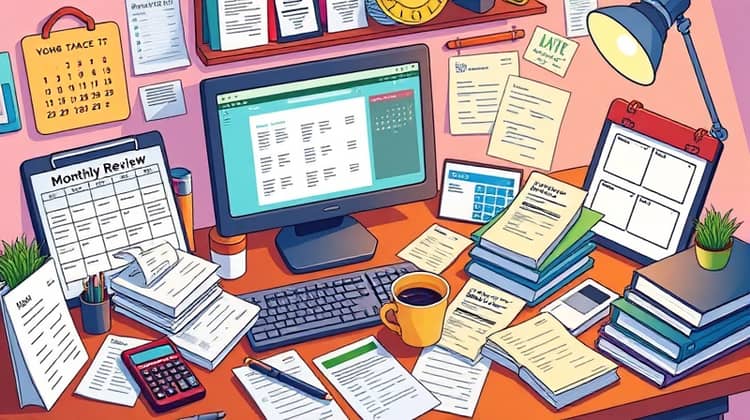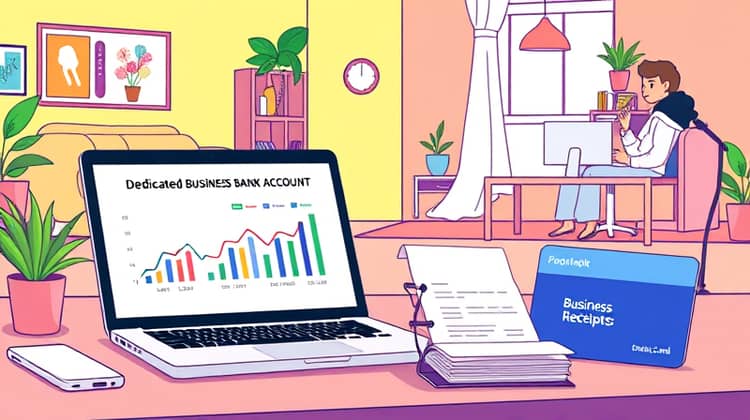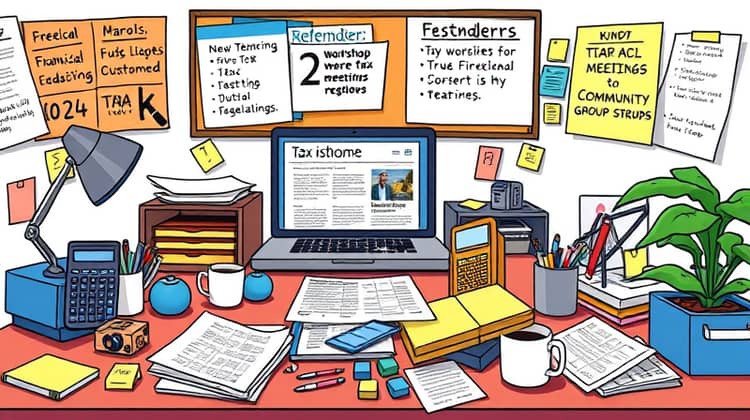Freelancing comes with its unique set of challenges and benefits, especially regarding financial management and tax obligations. Unlike traditional employment, freelancers often find themselves responsible for calculating their own taxes, making it crucial to understand the ins and outs of their tax duties. This article provides six essential tips for freelancers to manage their tax situations effectively, allowing them to maximize their income and maintain peace of mind during tax season.
Proper tax planning not only helps prevent unexpected tax bills but also allows freelancers to take full advantage of available deductions and credits. By following these tips, freelancers can ensure that they are keeping accurate records, separating business expenses from personal ones, and staying updated on any tax law changes that may impact them. With the right strategies in place, freelancers can navigate the taxing waters with confidence and ease.
Whether you're a seasoned freelancer or just starting, understanding tax planning is vital for your financial health. Let's dive into the essential tips that will help you manage your taxes efficiently.
1. Understand Your Tax Obligations

Freelancers need to be aware of their unique tax obligations, which can be quite different from those of regular employees. Unlike employees who typically have taxes withheld from their paychecks, freelancers must estimate their tax liabilities and make quarterly payments to avoid penalties. Understanding how much you owe and when is crucial for maintaining good standing with tax authorities.
It's essential to familiarize yourself with the types of taxes that may apply to your freelancing income, including federal, state, and possibly local taxes. Additionally, be aware of self-employment taxes, which cover Social Security and Medicare contributions. Knowing these elements will help you plan your finances accordingly and avoid surprises during tax season.
One way to prepare is to consult with a tax professional who understands the nuances of freelance work. They can provide invaluable insights and help you create a tax strategy that aligns with your specific business model.
2. Keep Detailed Records

Maintaining detailed records is vital for freelancers. Accurate documentation of your income and expenses not only ensures compliance with tax laws but also helps you maximize potential deductions. Start by organizing your financial documents in a systematic manner, using digital tools or accounting software to streamline the process.
Consider setting aside time each month to review your financial transactions, categorize expenses, and ensure that everything is up to date. This proactive approach can save you both time and stress when tax season arrives.
- Track all income received from freelance gigs.
- Keep receipts for all business-related expenses.
- Use accounting software to automate record-keeping.
- Reconcile your bank statements regularly.
- Maintain copies of invoices sent and received.
These practices can significantly reduce the likelihood of errors and make tax filing much easier. When tax time rolls around, having comprehensive records will also make it simpler for your tax preparer to assist you, should you choose to work with one.
3. Separate Personal and Business Finances

One of the most effective ways to manage your finances as a freelancer is to separate business and personal expenses. Opening a dedicated business bank account streamlines your financial management and simplifies tax preparation by clearly delineating your freelance income and expenses from personal ones.
This separation also helps protect your personal assets in the event of legal issues arising from your business activities, making it an important step for risk management. Keeping personal and business expenses separate will also aid in avoiding any potential confusion during tax reporting.
- Open a separate business bank account.
- Use credit cards specifically for business expenses.
- Keep receipts for business purchases separate from personal ones.
- Track mileage separately if using a vehicle for business.
- Consider using accounting software to manage both accounts.
By implementing these strategies, you’ll find it easier to manage your finances and comply with tax regulations without the headache of untangling mixed expenses come tax time.
4. Deductible Expenses

Freelancers are entitled to deduct certain business expenses, which can significantly reduce their taxable income. Familiarizing yourself with deductible expenses is essential for effective tax planning. Deductible expenses can include home office expenses, internet and phone bills, software subscriptions, and professional development costs.
To maximize your deductions, ensure that you have documentation to support every claim. This documentation could be receipts, invoices, or statements that validate your expenses. The more organized you are, the easier it becomes to substantiate your deductions during tax preparation.
5. Estimated Taxes

One major difference between freelancers and traditional employees is the requirement to pay estimated taxes. Freelancers typically need to estimate their income tax obligations quarterly based on the expected income for the year. Failing to make these payments can lead to penalties and interest charges, which can add up quickly.
It's essential to set aside a portion of your income regularly to cover these estimates. A good rule of thumb is to save approximately 25-30% of your income for taxes, which will help you cover both federal and state obligations. By making these payments on time, you reduce the risk of incurring additional costs and can better gauge your overall profitability.
Moreover, keeping track of your actual income throughout the year will help you adjust your estimated payments as necessary. If you find that your income decreases significantly, you can lower your estimated tax payments as well, potentially alleviating some financial pressure.
6. Stay Informed About Tax Changes

Tax laws are subject to change, and as a freelancer, it’s crucial to stay updated on current tax regulations that could affect you. Changes in tax laws can impact your deductions, credits, and overall tax obligations. Staying informed about these changes can save you money and help you remain compliant with regulations.
- Subscribe to reputable financial newsletters.
- Follow tax law changes via official government websites.
- Attend workshops or webinars on tax planning for freelancers.
- Consult with a tax professional regularly.
- Join freelancer community groups for shared insights.
By taking proactive steps to stay educated on tax issues, you can position yourself to make informed financial decisions and maintain compliance as a freelancer.
Conclusion

In summary, navigating taxes as a freelancer can seem daunting, but with the right strategies in place, you can handle this responsibility effectively. Understanding your tax obligations, keeping detailed records, and staying organized can significantly ease the stress associated with tax season.
Freelancers can thrive in their businesses by continuously educating themselves about tax laws and strategizing their finances. Smart tax planning not only helps ensure you comply with regulations but also allows you to retain more of your hard-earned income.














